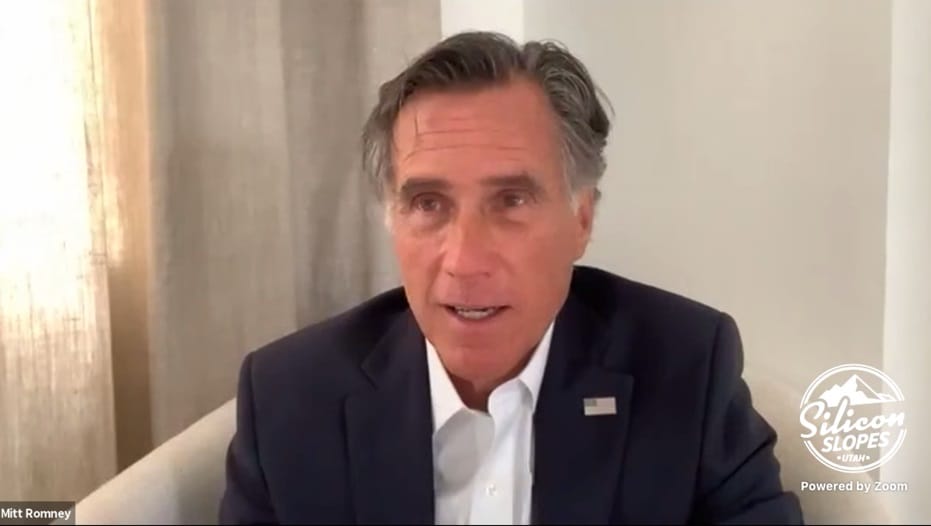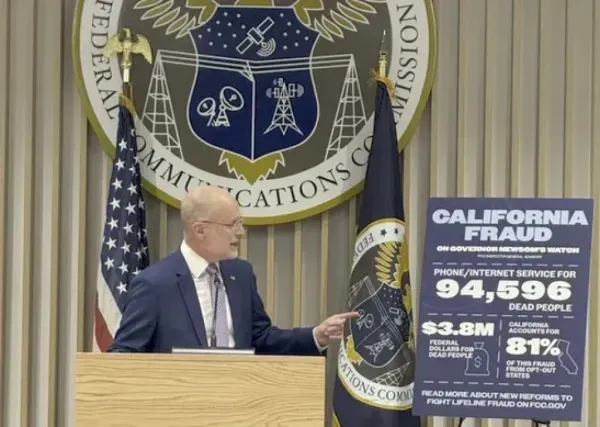Coronavirus Roundup: Microsoft on Contact Tracing Privacy, Romney on Payroll Protection, Open Markets on Antitrust
Microsoft has some suggestions for how the government and health authorities should go about handling privacy while it collects people data in an attempt to curb the spread of coronavirus, according to a blog post on the company website. It warned that the exciting applications of data to aid the th
David Jelke

Microsoft has some suggestions for how the government and health authorities should go about handling privacy while it collects people data in an attempt to curb the spread of coronavirus, according to a blog post on the company website.
It warned that the exciting applications of data to aid the three Ts: tracking, tracing, and testing, must be balanced with the following seven principles of data privacy:
- Obtain meaningful consent by being transparent about the reason for collecting data, what data is collected and how long it is kept.
- Collect data only for public health purposes. The data collected from an individual for purposes of tracing those who have been in physical contact with an infected person and other public health purposes is owned by the individual and should remain under that person’s control.
- Collect the minimal amount of data. Data that is collected by public health authorities for public health purposes, such as tracing, should be limited to only the specific data required.
- Provide choices to individuals about where their data is stored. The data must be wholly in the individual’s control, including allowing the individual to choose where to store this data, such as on a device or in the cloud.
- Provide appropriate safeguards to secure the data. Reliable security safeguards such as de-identification and encryption should be in place to protect people’s data from harmful exposure and hacking attempts.
- Do not share data or health status without consent, and minimize the data shared. An individual’s data or health status shouldn’t be shared with the individual’s contacts or others without securing the individual’s meaningful consent.
- Delete data as soon as it is no longer needed for the emergency. None of the individual’s information should be retained by the authorities or others for future unrelated uses or purposes.
Sen. Mitt Romney expressed confidence in Paycheck Protection Program
Sen. Mitt Romney, R-Utah, is “confident” that the next funding Paycheck Protection Program, which is allowing many companies to pay its employees during the epidemic, will be approved, but is not sure when. He said there was a 50-50 percent chance it gets approved this week, the senator said at a Silicon Slopes webinar on Monday.
After days of negotiations, on Tuesday House and Senate Democratic leaders and the Trump administration have reached agreement on a $484 billion package that will replenish the empty small business fund set up by the last coronavirus stimulus bill for companies with fewer than 500 employees to maintain their payrolls.
The Republican senator blamed the Democrats for the sluggishness of approving a “version 3.0” of the PPP. Romney identified two aspects that he said the Democrats were fixating on: Wanting to earmark some of the paycheck protection money for minority- and women-owned businesses, and want more money for the states.
Under the then-current version of the amorphous bill, states were to have received $150 billion. Democrats also want to reimburse businesses for the revenue they will lose as a result of the pandemic, he said.
Romney called the Democrat’s complaints “not unreasonable,” but he said they weren’t prioritizing speed. If the approval is not unanimous, then the Senate will need to reconvene at the Capitol to iron out its differences, pushing back the approval of the much-needed funds.
“The frustration you have is like mine,” the senator said regarding the sluggish movement toward passage. “It’s not a stimulus. It’s a rescue plan.”
Open Markets Institute urges Congress not to let up on regulating big tech
The Open Market Institutes sent a letter to the chairman of the House Judiciary Antitrust Subcommittee Chairman David Cicilline, D-R.I., to pressure antitrust law enforcers and Congress to break what it called a “dangerous concentration of power and control” by Google, Facebook, and Amazon.
The letter said that the key to protecting American democracy and prosperity is to apply traditional common carrier rules to these monopolists, “the same as Americans have done to every previous networked provider of essential services.” Enforcers and Congress should then prevent these corporations from competing with their own customers and should ensure that all networked services provided by these corporations be fully interoperable with rival systems.
“Illegal monopolization by Big Tech harms citizens as entrepreneurs, innovators, creators, employees, and consumers by reducing opportunity, imposing unfair business terms, driving down workers’ incomes, and robbing citizens of the choice, innovation, and quality that comes from true competition,” said Sally Hubbard, director of enforcement strategy at Open Markets Institute.
“Perhaps most importantly, tech giants have used illegal mergers and conduct to entrench their power and wield it in ways that disrupt the free press, fair elections, and the marketplace of ideas.”
The Institute also included bevy of proposed policies such as a temporary merger ban on all mergers by digital platforms, clearer rules barring exclusionary conduct, and protections for collective action by workers, professionals, small firms, and consumers against platform monopolists. “If left alone, the monopoly problem will continue to worsen,” warned the letter.








Member discussion